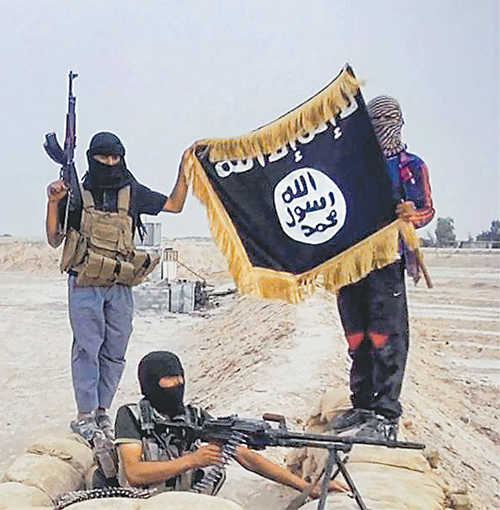
Saba Naqvi
There have been suggestions that a small section of Kashmir’s population could turn into hard core terrorists and follow the ISIS path. This is a flawed argument because the Daesh or ISIS flourishes in conditions in Iraq and Syria where civilisations have been flattened and human beings are on the run. ISIS is a perversion mutated from the utter devastation of war.
The situation in Kashmir may be bad but it can hardly be likened to Iraq-Syria or even Af-Pak. It would be a mistake to imagine that Kashmiri youth will mutate into hardened jehadis who do not hesitate to commit perversions on women or order a mass murder of children. It would also be useful to remember that Kashmiri fighters have not been known to commit acts of terror against civilian populations as the ISIS does. As and when protests or the insurgency has increased in Kashmir, the targets have mostly been symbols of the Indian state.
This is different from our own battles with terrorism in other parts of India. Take for instance the Sikh militants and remember the era when they murdered random civilians, often carrying the battle to Delhi. I remember a horrific night in 1987 when innocent citizens were gunned down in the street where I lived as they were celebrating Durga puja.
Yes, Pakistani trained terrorists have committed large scale acts of terror against India, in collaboration with some locals. But we need to disentangle prejudice from fact and understand what Kashmiri Muslims have done and what they have not done.
We have a very specific problem vis a vis Kashmir and it would be a mistake to use the wars, conflicts and devastation in the Muslim world to give us an alibi for policies in the valley. Kashmir is already on the brink and we do not need to send it over the brink permanently.
In Kashmir one should always remember that the more things change on the surface, the more they remain frozen in its history. There has always been a pro Pakistan constituency in Kashmir, weakened or strengthened by coordinates such as the conduct of the security forces in one of the worlds most militarised zones, sentiment within the valley where small triggers set off raging fires, where levels of cross border movement change with the seasons and where the political articulation of India’s national leadership is closely watched.
I saw many warning signs during three trips made over the past year although I have not been able to go to Kashmir during the recent troubles. Let’s recall Eid-al-Adha or Bakrid that will be observed on September 13 this year. I vividly remember being in Kashmir soon after Eid last year when curfew had to be imposed in the valley because a Jammu court resurrected an old ban on the sale of beef in the state. In the valley where the traditional meat is mutton, a furious rage drove many people to begin slaughtering cows as a sign of protest and posting the images on social media. This was a response to cow vigilantism, lynchings and the changing politics of India.
Even before the mass attendance at Burhan Wani’s funeral on July 9 this year, let’s recall what happened on October 29 last year when Lashkar-e-Taiba commander Abu Qasim was killed. The slain militant was a “foreigner” in that he was a Pakistani who had entered Kashmir five years ago. He was not a local like Burhan. Yet the attendance at his funeral and the outpouring of anti India emotion was on a scale not witnessed since the late 80s and early 90s. The signs were there.
What I also found by November last year was a renewed debate on the Two Nation Theory. I put questions on this to Syed Ali Shah Geelani, considered the most hardline of the Hurriyat leaders, who has always advocated an Islamic code for Kashmir (but not ISIS). I reproduce snatches from the recorded conversation that began after he told me to cover my head in a manner appropriate to a “respectable” woman.
Q: many people are talking to me about the Two Nation theory…
A: Our tehzeeb is different from Hindus. Two Nation Theory is real. There are two Quoms (communities). One which does not believe in Allah, the other that does not.
In Pakistan, Muslims are fighting among themselves…
That is barbarism (jahalat). Islam is a religion of peace and equality.
In which country in the world do you see the ideal Islamic state?
Nowhere. Saudi Arabia too is not doing the right thing in giving money to destabilise other Muslim countries.
Why are you against secularism?
Secularism on paper is meaningless if people are threatened and killed.
Whether or not Geelani is a paid agent of Pakistan I do not know. What I do know is that we have made so many mistakes in Kashmir that the Two Nation Theory (that failed most spectacularly with the creation of Bangladesh) can be bandied about as a stick against India.



























